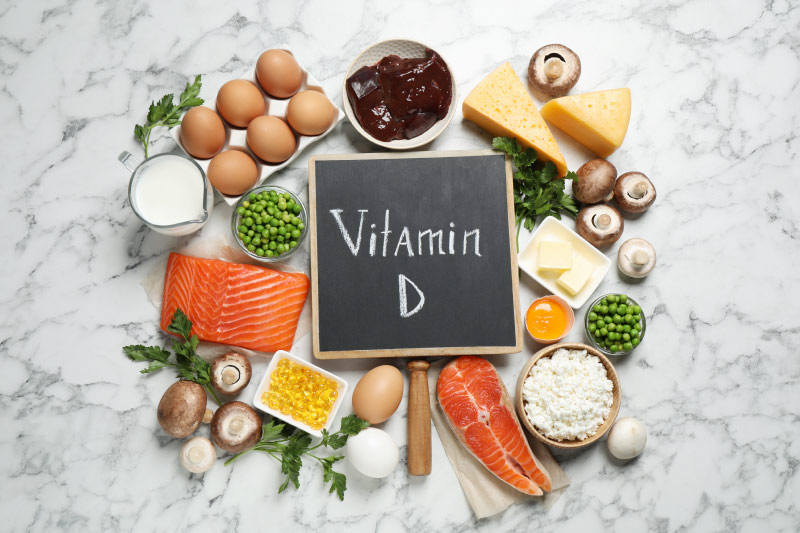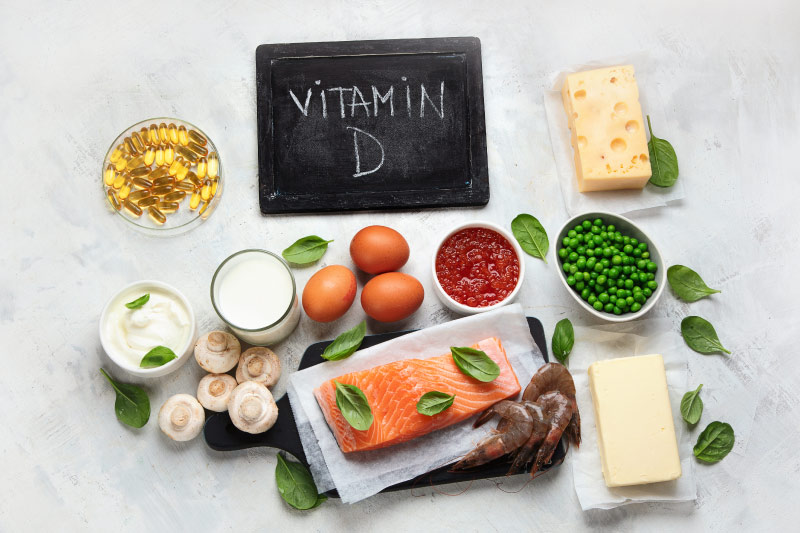Vitamin D deficiency is a health problem that’s becoming increasingly common. It is responsible for maintaining several body functions, like improving bone health and immunity, which reduces the risk of autoimmune diseases. Most of us don’t get the required vitamin D intake. However, you can increase your vitamin levels by increasing your exposure to the sun, including supplements and eating specific foods like mushrooms. So let’s focus on “how to get vitamin D” and recharge your vitamin D levels.
What is vitamin D?

Vitamin D is a fat-soluble vitamin that generally helps absorb calcium and promote bone growth and mineralization. Vitamin D also helps regulate the immune system and the neuromuscular system. It is important to take measures to maintain healthy vitamin D levels.
Recently, It has been found that a balanced vitamin D intake can help manage several diseases and mental conditions like diabetes, heart complications and the risk of depression.
Symptoms of vitamin D deficiency
Here are some of the symptoms that you can experience if you have vitamin D deficiency:
- Fatigue
- Unstable sleep schedule
- Sudden hair loss
- Change in appetite
- Pale skin
- Bone aches
Vitamin D deficiency can happen because of a number of factors, like a lack of a balanced diet, poor absorption of nutrients or an unstable metabolic rate. Vitamin D deficiency or lack of exposure to sunlight can give rise to several health conditions. Some of the following health conditions can also make you more prone to vitamin D deficiency:
- IBS (Inflammatory Bowel Disease) condition in people can disrupt the normal digestive process.
- People with obesity are found to have lower levels of vitamin D in their blood. Vitamin D often gets stuck in fat cells, and your body is unable to use that for body functions.
Benefits of a vitamin D dose
Here are some of the benefits of maintaining a healthy vitamin D level:
- Reduces the risk of heart disease:
Low vitamin D levels have been associated with an increased risk of chronic diseases like hypertension, diabetes, heart failure and stroke. It can also strengthen your immune system and protect you against flu, multiple sclerosis and type-1 diabetes.
- Enhance your mood levels:
A healthy vitamin D level can help you enhance your mood levels and improve your state of mind. It can also help you manage anxiety and depression.
- Reduces the risk of dementia:
There are vitamin D receptors in your brain tissues, which indicates that vitamins play a huge role in cognitive function. They can also help in reducing the risk of dementia and other cognitive complications.
- Can reduce the risk of type-2 diabetes:
Vitamin D is well-known for increasing insulin and boosting the function of beta cells, which lowers inflammation. All of these features suggest that vitamin D is beneficial and can help in managing the ill effects of type-2 diabetes.
How much vitamin D do we need?
The average daily Value (DV) for vitamin D is only 20 micrograms. You can see the content listed on the package of various food products to check the amount of vitamin D content they contain. However, keep in mind it’s best to increase vitamin D naturally from food products and the sun.
How to get vitamin D?

If you have questions like “How to get vitamin D?” or “How to gain vitamin D?” look no further! Here are some of the best sources to increase your vitamin D content.
- Get vitamin D from the sun
If you have low levels of vitamin D, soaking up the warmth of sunlight early in the morning for about 10-20 minutes can make a difference in rejuvenating your body. Aside from hitting an indoor gym, you can take up an outdoor sport to spend time in the sun.
However, too much of a good thing can be bad! Excessive exposure to sunlight, especially UV rays, can cause skin cancer. Limited amounts of sunlight boost the body’s vitamin D production. In instances where there is less scope for sunlight absorption – during winter or when one lives in the mountains, for example – there are diet options available to obtain the needed vitamin D dosage.
- Popping a pill
For some, taking a supplement in the form of a tablet would cover the daily vitamin D requirement. It must be remembered that most medicines can induce side effects. Thus, one must always consult a doctor before starting vitamin D medication.
- Increase intake of fortified foods
Fortified foods include externally added vitamin D. Besides fortified milk, several foods, like yogurt, cereals, orange juice etc., can increase vitamin D content. Since a daily dose of vitamin D is necessary, most fortified foods are daily staples like milk and breakfast cereals. Fortified orange juice can be a good choice for vegans or lactose intolerants. Fortified foods can be exactly what you’re looking for if you want to know “How to get vitamin D?”
- The coastal advantage
Fatty fish and other seafood are rich in vitamin D. The exact vitamin D content varies between different fish species. Salmon, tuna, and sardines contain higher amounts of vitamin D. Vegetarians can opt for external supplements like cod liver oil capsules to get their Vitamin D dose.
- Eat mushrooms and eggs
It is ironic that while mushrooms do not need sunlight to grow, they are a rich source of vitamin D! However, one must purchase mushrooms from trustworthy sources as some varieties are poisonous. Egg yolks also contain vitamin D.
In conclusion, getting the required dose of vitamin D from the sun, food, and supplements is possible. One can balance the three modes according to convenience and needs. However, remember that natural options like sunlight and healthy diet choices are better for one’s bones and a better quality of life than vitamin D tablets.
Stay tuned to the Activ Living Community. Keep up to date with the latest health tips and trends through expert videos, podcasts, articles, and much more in nutrition, fitness, mindfulness, and lifestyle conditions like Asthma, Blood Pressure, Cholesterol, and Diabetes.
You may also be interested in the following blogs:
- Beat Your Health Blues With Oranges! Benefit From Its High Vitamin C Content
- What Causes Vitamin D Deficiency And How Can You Prevent It?
Popular Searches
How to lower blood pressure | Fruits good for liver | Unhealthy foods | Ragi Benefits | Basal Metabolic Rate | Acupressure points for High Blood Pressure | Ayurvedic medicine for blood pressure | How to control cholesterol at home | Homeopathy for Asthma | Biological Age | Home remedies for TB | Natural beta blockers | Negative effects of internet | Types of walking | Blood pressure calculator | Blood sugar calculator | BMI Calculator





 1800-270-7000
1800-270-7000









